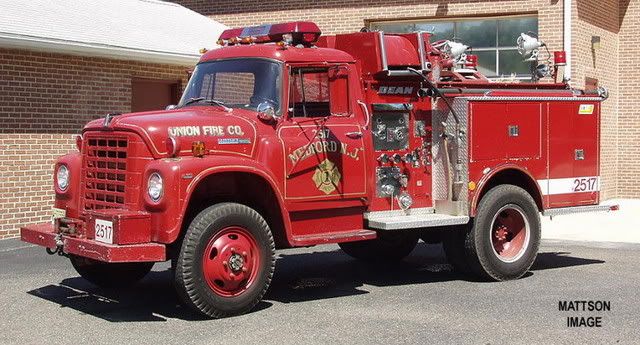Post by hp4l on Jan 7, 2009 17:44:18 GMT -5
Not sure how many people actually read these threads. I know a lot get it from the secret list or other fire emails. Here is a review for 2008 from the secret list. Take the time to review some of these and see how you can better yourself, your station, etc.
The USFA reports there were 114 on-duty Firefighter fatalities in the United States as a result of incidents that occurred in 2008. During this period, there were Firefighters lost from 34 states and one from the Virgin Islands.
Each of the following states suffered more than 5 on-duty losses:
North Carolina (11) LODD's
Oregon (9) LODD's
Pennsylvania (9) LODD's
California ( 8) LODD's
New York (7) LODD's
Illinois (6) LODD's
Missouri (6) LODD's
Ohio (6) LODD's
"The tragic losses of on-duty Firefighters in 2008 are a reminder of the necessary commitment and efforts by all Firefighters to focus on and improve our operational safety," U.S. Fire Administrator Greg Cade said...and further stated... "We understand all too well that many of these losses are preventable"
As the USFA continues to collect and evaluate information regarding the 2008 on-duty firefighter deaths, here are some of the early known facts:
Preliminary estimates indicate that heart attacks and strokes were responsible for the deaths of 50 firefighters (43.8%) in 2008. This shows a decrease from 54 of the 118 (45.7%) firefighters in 2007.
In 2008, 26 on-duty firefighters died in association with wildland fires.
This loss is more than double the 11 wildland firefighter fatalities in 2007.
The 2008 toll is also above the annual average of 21 wildland fire-associated fatalities over the past 10 years, 1999-2008.
For 2008, 64.9% of all firefighter fatalities occurred while performing emergency duties.
=Twenty-nine firefighters died in 2008 as the result of vehicle crashes.
=Fourteen of these deaths involved aircraft crashes.
=Fifteen firefighters died in motor vehicle crashes.
=Six firefighters were killed in crashes involving their personal vehicles and three died in water tender (tanker) crashes. These two vehicle types have historically been most often involved in crashes that take the lives of firefighters.
Speed and a lack of seat belt use historically contribute to these incidents.....
More details here: www.usfa.dhs.gov/fireservice/fatalities/
The USFA reports there were 114 on-duty Firefighter fatalities in the United States as a result of incidents that occurred in 2008. During this period, there were Firefighters lost from 34 states and one from the Virgin Islands.
Each of the following states suffered more than 5 on-duty losses:
North Carolina (11) LODD's
Oregon (9) LODD's
Pennsylvania (9) LODD's
California ( 8) LODD's
New York (7) LODD's
Illinois (6) LODD's
Missouri (6) LODD's
Ohio (6) LODD's
"The tragic losses of on-duty Firefighters in 2008 are a reminder of the necessary commitment and efforts by all Firefighters to focus on and improve our operational safety," U.S. Fire Administrator Greg Cade said...and further stated... "We understand all too well that many of these losses are preventable"
As the USFA continues to collect and evaluate information regarding the 2008 on-duty firefighter deaths, here are some of the early known facts:
Preliminary estimates indicate that heart attacks and strokes were responsible for the deaths of 50 firefighters (43.8%) in 2008. This shows a decrease from 54 of the 118 (45.7%) firefighters in 2007.
In 2008, 26 on-duty firefighters died in association with wildland fires.
This loss is more than double the 11 wildland firefighter fatalities in 2007.
The 2008 toll is also above the annual average of 21 wildland fire-associated fatalities over the past 10 years, 1999-2008.
For 2008, 64.9% of all firefighter fatalities occurred while performing emergency duties.
=Twenty-nine firefighters died in 2008 as the result of vehicle crashes.
=Fourteen of these deaths involved aircraft crashes.
=Fifteen firefighters died in motor vehicle crashes.
=Six firefighters were killed in crashes involving their personal vehicles and three died in water tender (tanker) crashes. These two vehicle types have historically been most often involved in crashes that take the lives of firefighters.
Speed and a lack of seat belt use historically contribute to these incidents.....
More details here: www.usfa.dhs.gov/fireservice/fatalities/

